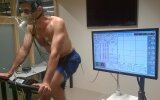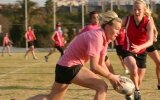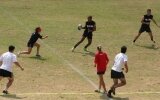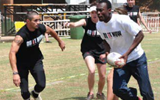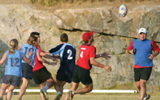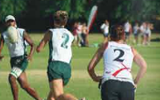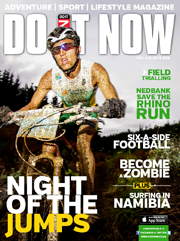- Magazine
- #readityourway
- Weekly Stories
- #shareyourstory
-
Adventure
- Abroad Travelling
- Africa Travelling
- Events
- Expos & Shows
- Festivals
- Fishing
- Free Diving
- Gliding
- Horse Riding
- Inspiring People
- Islands Travelling
- Kite/Windsurfing
- Motorbiking
- Motorised Water Sports
- Mountaineering
- Mountain Biking
- Off-road 4x4
- Off-road Motorbiking
- Paddling
- Performance Driving
- Photography
- Rock Climbing
- Rollerblading
- Sailing
- Scuba Diving
- Skateboarding
- Skydiving
- Snowboarding & Skiing
- Surfing
- Swimming
- Trail Running
- Wakeboarding
- Waveski Surfing
-
Sport
- Adventure Racing
- Fishing
- Free Diving
- Gliding
- Health & Fitness
- Horse Riding
- Inspiring People
- Kite/Windsurfing
- MMA
- Motorbiking
- Mountain Biking
- Multi-sport
- Off-road 4x4
- Off-road Motorbiking
- Paddling
- Performance Driving
- Photography
- Road Cycling
- Road Running
- Rock Climbing
- Rollerblading
- Sailing
- Scuba Diving
- Skateboarding
- Skydiving
- Snowboarding & Skiing
- Surfing
- Swimming
- Rugby
- Trail Running
- Triathlon
- Wakeboarding
- Waveski Surfing
- Lifestyle
- Calendar
A Beginner’s Guide to Rugby Sevens
Words: Tony Niemeyer | Photos: Gallo Images
Category:
Rugby
This year’s South African Sevens Tournament is set to hit Nelson Mandela Bay with full force on Saturday 8 and Sunday 9 December 2012 in a whirlwind of top-class international Sevens action, electrifying live entertainment, and a carnival atmosphere that has earned the event the title of 'rugby’s biggest party'.
The Nelson Mandela Bay South Africa Sevens is the third leg of the HSBC World Sevens Series, which consists of nine tournaments held around the world between October and May every year. It kicks off with Australia before moving on to Dubai, South Africa, New Zealand, USA, Hong Kong, Japan, Scotland, and finally England, in a Grand Prix-style circuit.
Nelson Mandela Bay Stadium will see 16 international teams tear up the turf in one blisteringly fast, high-octane game after the next to determine which team has the mettle to take home the SA Seven’s cup trophy. Rugby Sevens is renowned for being a super-fit and fast version of rugby union, and is certain not to disappoint.
South Africa won the 2008/09 series and was runner-up in 2010/11. Our Springbok Sevens, who are known affectionately as the Blitzbokke, only managed fifth last season, but the guys are amped for this round and ready to do their country proud.
Scores of people from all walks of life – Sevens fans, sports enthusiasts, families, students, party animals or holiday makers – are expected to flock to the NMB Stadium for the weekend, to experience first-hand why rugby Sevens players are known as the superheroes of the rugby world.
The Nelson Mandela Bay South Africa Sevens will feature live entertainment by DJ Reddy D, The Graham Watkins Project, and Good Luck, not to mention a host of professional dancers, impersonators, and crowds of people dressed up in a multitude of crazy costumes.
This year will also see the addition of the 'party stand' – an area dedicated exclusively to Sevens party animals who are more interested in the dress up and carnival atmosphere than the sport itself.
Rugby Tens fans will also be excited to know that this year, for the first time, the PE Tens tournament will kick off on Friday 7 December and overlap with the Sevens, thus adding to the overall carnival atmosphere.
Tickets start at R80 and will be available from www.computicket.com. Watch your local press or visit www.sarugby.co.za for more details.
Sevens is the perfect format of the game of rugby for people who want blisteringly fast, high-impact rugby that packs all the excitement of an 80-minute match into 14 minutes. It’s the Twitter of rugby – lean, mean, fast, and perfect for the fast-paced world we live in where 30 minutes into a normal rugby game, you’ve already lost track of what’s happening because your friend’s just Whatsapped you to find out what’s happening.
A Beginner’s Guide to Rugby Sevens
Sevens is all the good stuff you’ve come to expect from an 80-minute game, the tackles, the break aways, the epic sprints for the try line, with the added excitement of cheerleaders, dancers, and a dedicated party stand that all add to an electrifying atmosphere at the games.
So if you are keen to be a part of 'rugby's biggest party' in December, but don't quite understand how Sevens differs from Rugby Union, here are the top seven differences:
1. One of the most obvious differences between the games is the amount of players required. In rugby union, the match-day team is made up of 22 players and 15 start the game. The Sevens match-day squad is made up of 12 players and only 7 start the game.
2. In a Sevens match the coach has 5 substitutions available, but is only allowed to use 3 of these during the course of the game. In 15-man rugby, they have 7 substitutes and can use all 7 in the course of a game.
3. Sevens matches are split into two halves of seven minutes each, with a one minute, half-time break. Fifteen-man rugby games are most definitely not! (Just a note: Sevens tournament finals are usually extended to halves of ten minutes, with a break of two minutes to allow for more spectacular action!)
4. Conversions in a Sevens match must be taken within forty seconds of a try being scored, whilst in the 15-man game it’s sixty seconds - and Sevens' kickers are only allowed to drop kick the conversion to ensure that the game never slows down.
5. The Sevens team that scores the try will always take the resulting kick-off to ensure that both teams have a fair amount of possession of the ball.
6. In Sevens, a scrum is only contested by 3 players. In a 15-man game, a scrum is contested by 8 players.
7. When a player is shown a yellow card in Sevens they have to leave the field for two minutes. This has a huge impact on the game, as a lot more space opens up on the field than when a player is sin-binned in Rugby Union.
Now that you’ve got the basics down, snatch up some tickets for the South African Sevens Tournament in December and experience rugby’s biggest party first-hand!
Related content
|
|
|
|
|
|
|
|
|
|

